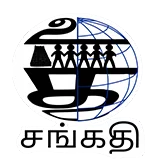
ECONOMYNEXT –Sri Lanka cannot relax an import ban on vehicles, State Minister of Finance Ranjith Siyambalapitiya said, after the rupee fell steeply from around 191 to 220 level due to the operation of an inconsistent peg with one sided buying.
The flexible exchange rate, concocted by Western mercantilists and peddled to countries without a doctrinal foundation in sound money, which is neither a clean float nor hard peg, critics have said.Under IMF programs in particular, central banks which had busted up reserves by mis-targeting rates are encouraged to buy dollars (creating new money) but not to sell.
As a result, there is no mechanism to match timing differences between inflows and domestic credit, other than the net open position of banks.Third world monetarily unstable central banks also limit NOPs.In this instance the rupee was appreciating steeply in the days before, amid generally good monetary policy by the central bank in the past two months, which discourages plus positions.
If the central bank does not sell back some of the dollars it bought, liquidity is not tightened; there could be a short-term mismatch, or an exchange policy error. In May the central bank had bought 662.5 million US dollars.Under the flexible exchange rate, interventions are delayed, triggering a sudden shift from a peg to a floating regime until the market is in full panic mode with importers scrambling to cover, which is defined as ‘excessive volatility’.
There was a 70 to 80 million US dollar oil bill and the central bank had bought dollars, Siyambalapitiya said.As the rupee weakened other parties had also bought dollars, fearing a further weakening. This is normal, he claimed.
“If an allocation for oil for 70-80 million dollars created affected the value of the rupee in this manner, items like vehicles, which require more dollars, have to be considered very carefully,” Siyambalapitya said in the statement.
“Therefore, we cannot give permission to import cars now.”
The central bank eventually intervened in the market and several banks gave the dollars to the bank concerned to cover the import bill.Critics say the ad hoc flexible exchange rate, coupled with flexible inflation targeting is perhaps one of the deadliest monetary regimes ever devised.
Under the regime, interest rates are cut as soon as inflation comes down from the previous crises.Inflation nears zero about 12 to 18 months after rates are hiked to correct reserve losses, just as domestic credit starts to pick up.
Analysts have warned that an IMF, net international reserve target (requiring pegging and exchange policy) and a monetary policy consultation clause (which require floating and monetary policy only) are in fundamental conflict.
When rates are cut, and if they are enforced with overnight or term reverse repo injections, the currency slides again, and monetary policy errors are compensated with depreciation, resulting in public discontent, mass rejection of free markets, a failed reform agenda, and the ouster of (usually) reformist leaders.
While short term exchange policy errors can be corrected with interventions, monetary policy errors cannot be corrected by interventions which are sterilized with new money to maintain the fixed policy rate, analysts say.In the case of a country that restructured debt, the money and exchange policy conflicts may lead to a second default.
A ‘flexible exchange rate episode in March 2020 led to a loss of market access, earlier they have led to downgrades.In order to continue mis-targeting rates and avoid correcting them, economic bureaucrats persuade politicians to impose exchange and import controls, analysts say. The current Import and Export Control Law was brought in 1969 in the wake of two back to back IMF programs.


You must be logged in to post a comment.